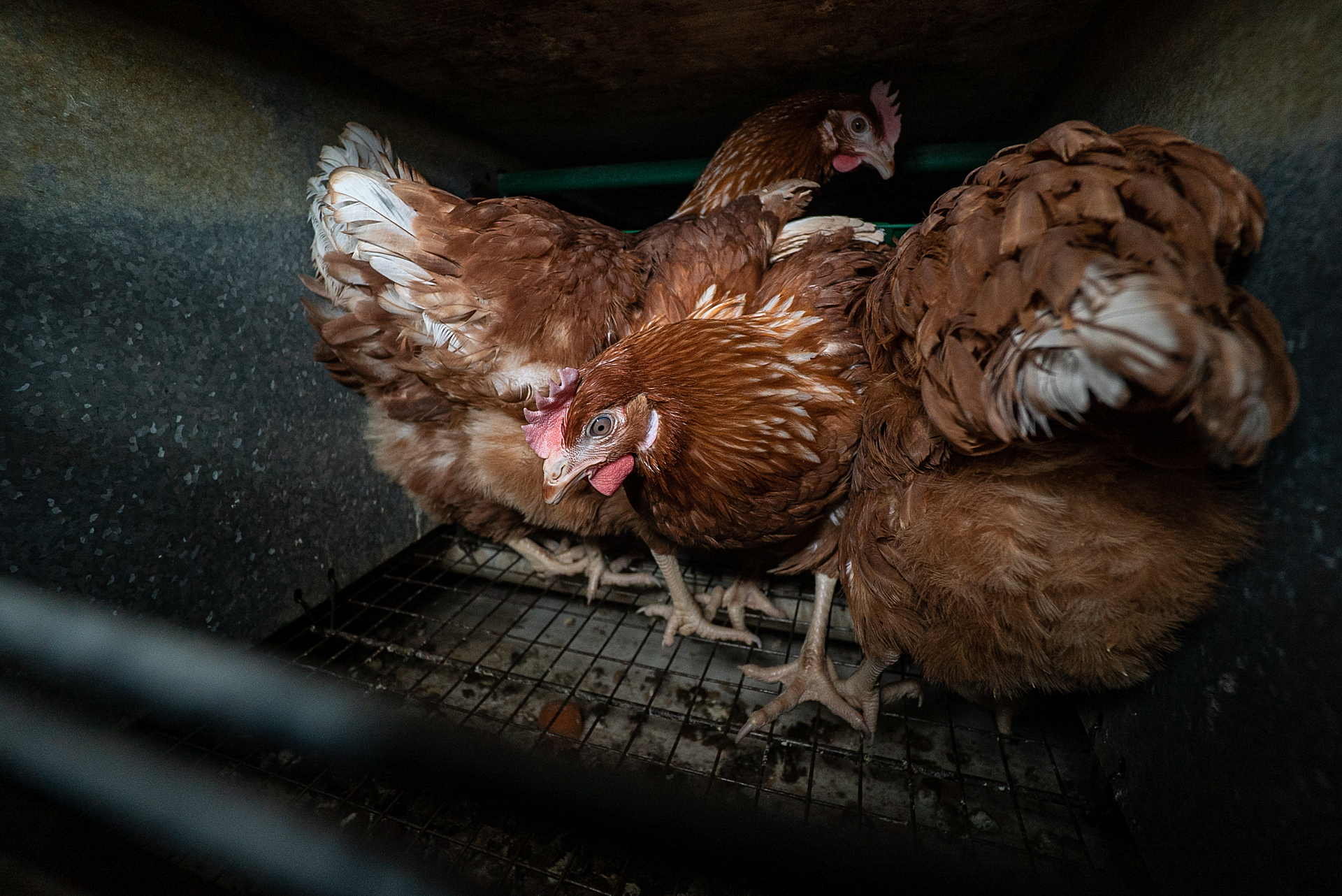Celebrating the Night Gardeners of our Eco-System! Australia is home to over 90 species of bats, each playing a critical role in our ecosystems. From pollinating native flora to foraging on insects, these remarkable creatures help keep our landscapes healthy, diverse and in balance. On International Bat Day, Humane World...
Despite bans on battery cages around the world, it’s estimated that more than 5 million egg laying hens are still confined in the cruel cages in Australia every day.
Why we need to #CantheCage
Battery cages are outdated
Battery cages were first banned in Switzerland in 1992, more than 30 years ago! In fact, more than 75 per cent of OECD countries have already moved to phase them out, so Australia is lagging far behind.
What are battery cages?
Battery cages are small wire cages stacked in long rows, that house thousands of hens. The hens are crammed together inside these cages for their entire lives. It is a production system for layer hens that accounts for more than half of the entire egg industry. Each hen only has the space equivalent to an A4 piece of paper, where she’s unable to flap her wings or enjoy the sunshine on her feathers as nature intended.
Millions of hens suffer
In these dark, cramped wire cages, the hens have no room to move around, and are denied their most basic natural behaviours such as nesting, dustbathing and foraging—no animal should be forced to live like this.
Broken bones
Because of the lack of exercise and having to produce so many eggs, the layer hens are prone to osteoporosis which leads to painful broken bones.
What’s the latest?
Super supermarkets
Australia’s three major grocery chains—Coles, Woolworths, and Aldi—have all made long-standing commitments to remove caged eggs from their shelves by 2025, with work underway to remove caged eggs as an ingredient in some of their products. Despite this, there remains strong demand for caged eggs from elsewhere in the market. Government regulation is urgently needed.
Poultry standards endorsed
Government regulation was promised. After a lengthy eight-year review, the national Australian poultry standards were finalised in 2022 and include a battery cage phase out by 2032–2036. Australia’s agriculture ministers met in July 2023, and all endorsed the standards which will require each state and territory to pass its own law committing to the phase out.
However, a year on from the July 2023 announcement, and most states have failed to turn their words into legislation and implement the national poultry standards. It’s high time they did!
What can you do?
- Take action: Call on your state agriculture minister to legislate a battery cage phase-out date as soon as possible. Take action to help #CantheCage here.
- Better choices: If you do buy eggs, please be sure to opt for free range eggs with stocking densities no higher than 1,500 birds per hectare. This will be stated on the egg carton.
- Eggs-periment with alternatives: Multiple strains of bird flu have been making their way across Australia, and distressingly more than 2-million-layer hens have already been destroyed. With these outbreaks leading to higher costs and less eggs available in stores, now is the perfect time to try out some humane alternatives. Some great egg substitutes include ‘aquafaba’ (the brine from canned chickpeas), mashed banana, unsweetened apple sauce, ground flax seeds with water, chia seeds with water, arrowroot powder with water, a combo of water/oil/baking powder, or simply just carbonated water alone is perfect in baking. It’s time to give it a crack!


